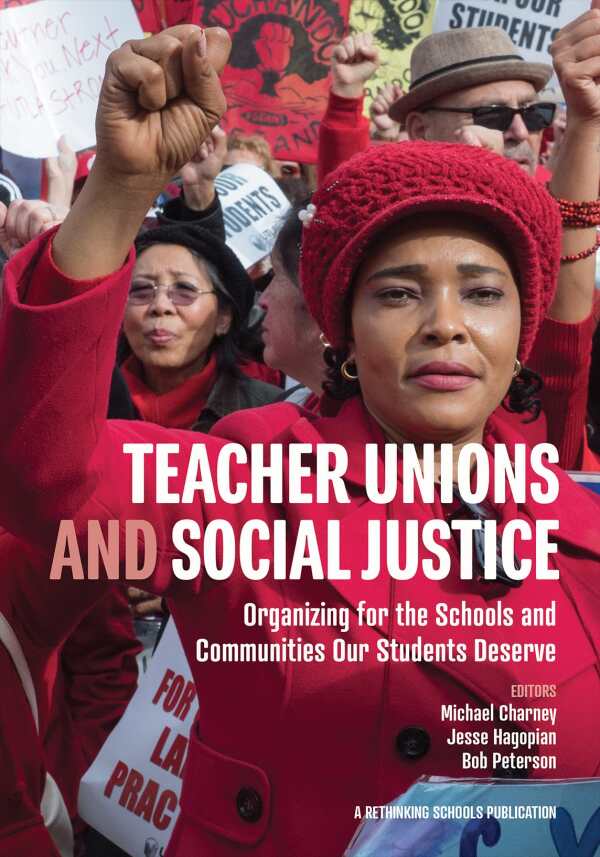Teacher Unions and Social Justice
Organizing for the Schools and Communities Our Students Deserve
Teacher Unions and Social Justice is a timely text about facilitating progressive education.
Edited by Michael Charney, Jesse Hagopian, and Bob Peterson, Teacher Unions and Social Justice is a collection of essays about the intersections of class, community, and education.
With entries from progressive luminaries, including Howard Zinn, this book is centered in strategy. It recommends building coalitions between unions and communities to demand investment in public schools across local, state, and federal levels. Its labor framework combines with a toolbox of terms (bargaining, collective action, strikes, and organizing all factor in) to illustrate what actions need to be taken, and how those actions can be accomplished.
These selections link labor rights with education rights, arguing that little progress has been made in American public education without struggle against the powers that be. As Zinn notes in the opening interview, “The history of labor struggles in this country is one of the most dramatic of any country in the world.” The work so begins with a history of teacher activism, followed by reviews of the elements of three different types of teacher unions: industrial, professional, and social justice.
A section devoted to stories of how rank and file union members effect change from the bottom up is followed by one that describes a revitalization of teacher unions through connecting unionized workers to broader working-class communities, engaging in anti-racist work, and questioning traditional hierarchies. In the book’s vision, a union’s identity goes beyond its leaders, who manage contract bargaining and enforcement to promote and publicize the members’ collective action on cultural and community matters of concern.
The book also analyzes how “austerity, white supremacy, privatization, school takeovers, and the corporate push for standardized testing” impair the quality of public school education and undermines attempts at equity. Here, an assumption that all public school students are disadvantaged in some way is forwarded, but underexplored. Coverage of how educators might weave social justice concerns into classroom activities (in part to connect with students’ day-to-day concerns about climate change, health, and local economies) is included, but without addressing how the objections of conservative parents might be handled.
With a useful collection of resources for unions and teachers, including sample memoranda of understanding, contracts, self-reflection tools, and restorative justice practices, the book’s ending supplements its earlier personal narratives about replacing the current “corporate reform agenda of standardized testing, scripted curriculum, and top-down control” with a collaborative model of humane education that treats parents as partners and fosters civic engagement.
The entries vary in tone, though most strike personal notes and share individual experiences. The book’s photographs of students, teachers, and organizers at work enhance its proclaimed values of diversity, inclusion, and cooperation.
A call to action for unions and their members to embrace social justice unionism, Teacher Unions and Social Justice is a timely text about progressive education.
Reviewed by
Michele Sharpe
Disclosure: This article is not an endorsement, but a review. The publisher of this book provided free copies of the book and paid a small fee to have their book reviewed by a professional reviewer. Foreword Reviews and Clarion Reviews make no guarantee that the publisher will receive a positive review. Foreword Magazine, Inc. is disclosing this in accordance with the Federal Trade Commission’s 16 CFR, Part 255.

